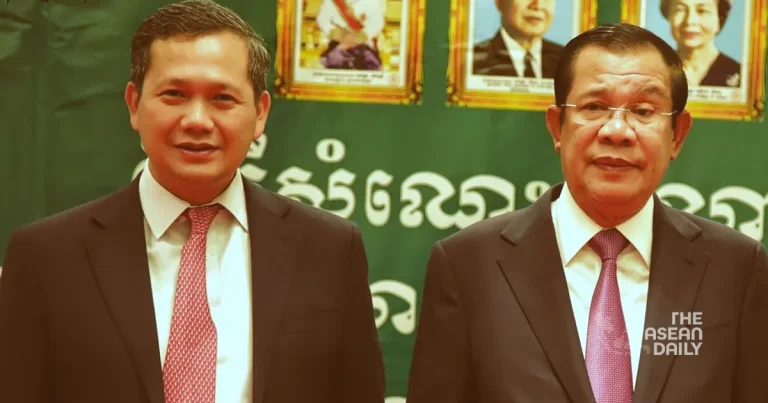15-10-2024 (PHNOM PENH) Cambodia’s Prime Minister Hun Manet has adopted a notably subdued stance on the international stage, most recently evidenced by his low-key presence at the ASEAN summit in Vientiane. The 47-year-old leader, who inherited the premiership from his father Hun Sen just over a year ago, has yet to hold an open press conference or make significant public statements, leaving many to question the true nature of power dynamics within the country’s leadership.
Hun Manet’s reticence stands in stark contrast to the gregarious style of his father, who continues to wield considerable influence despite officially stepping down after nearly four decades of autocratic rule. The elder Hun Sen, now serving as president of the senate – the nation’s second-highest ceremonial role – has maintained a highly visible presence, hosting foreign dignitaries and openly declaring his ongoing political relevance.
Analysts suggest that this dual leadership arrangement reflects a carefully orchestrated transition of power, with Hun Sen remaining the de facto authority behind the scenes. Sebastian Strangio, author of “Hun Sen’s Cambodia”, notes that the past year has made it clear that Hun Sen “remains the most powerful and influential political figure inside Cambodia, and continues to play an important role in decision-making.”
The contrast in leadership styles is stark. While Hun Sen regularly shares his views on government policy with millions of social media followers, Hun Manet has yet to articulate his vision for navigating crucial challenges, including balancing relations between China and the West. This silence has led to speculation about the extent of his actual authority and decision-making capacity.
Despite Hun Manet’s more measured and technocratic approach, there are concerns that the fundamental nature of Cambodia’s political system remains unchanged. Critics point to ongoing crackdowns on opposition figures and journalists as evidence that the regime’s authoritarian tendencies persist. The recent arrest of award-winning journalist Mech Dara and the hefty fine imposed on an opposition leader for criticising the state of democracy under Hun Manet’s leadership have done little to allay these concerns.
The younger Hun, a West Point graduate, faces a multitude of challenges as he attempts to steer Cambodia through economic recovery, internal party dynamics, and complex international relations. However, his ability to address these issues independently of his father’s influence remains a subject of debate among political observers.
Sophal Ear of the Thunderbird School of Global Management at Arizona State University suggests a “dual leadership dynamic” is at play, with Hun Sen retaining significant sway over major decisions, particularly in sensitive areas such as foreign policy and security. This arrangement raises questions about Hun Manet’s autonomy and his capacity to implement his own vision for the country’s future.




